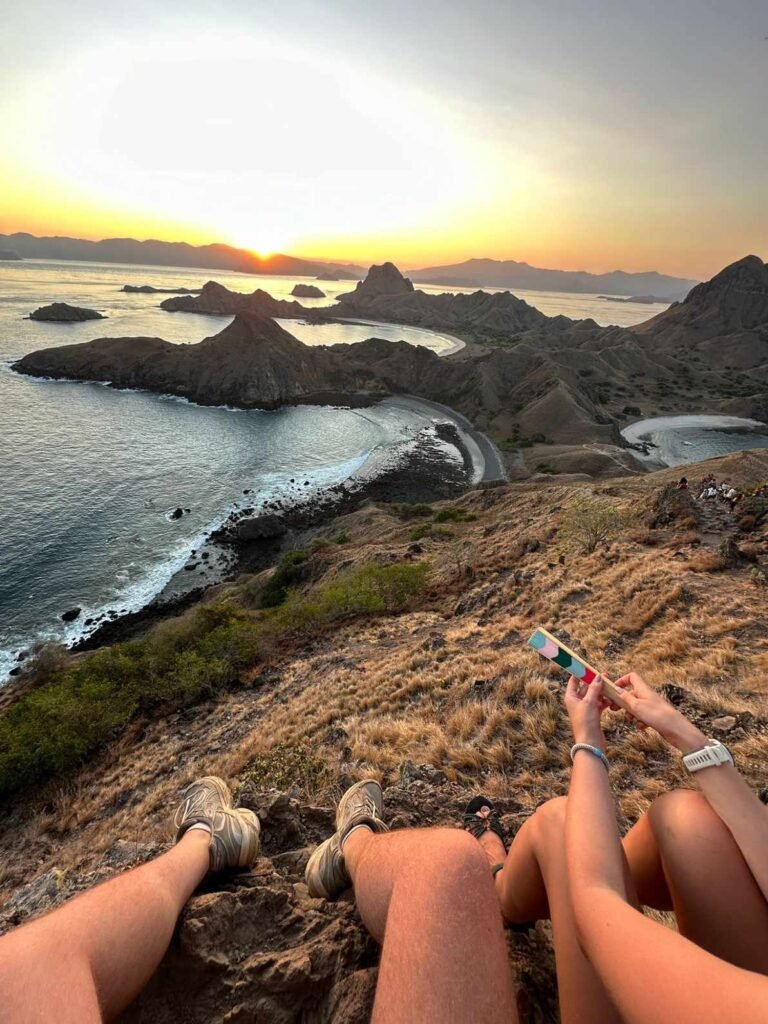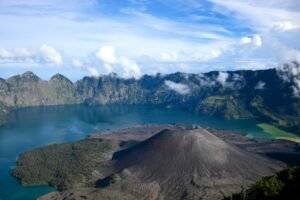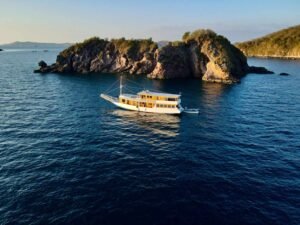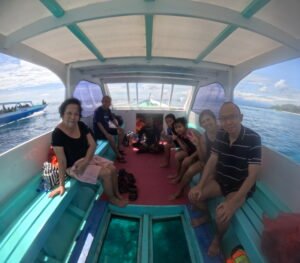
Komodo Trip Checklist: Health & Medications You Must Pack. Traveling to Komodo National Park means being prepared for the sea, tropical sun, and remote terrain, which certainly requires thorough health preparation for a safe and comfortable trip. Here are some health checklists you can follow before leaving for your vacation:
Before Departure: check vaccinations & consult a doctor
Ensure routine vaccinations (tetanus, polio, DTP, MMR) are up to date. For travel to Indonesia, consider additional vaccinations such as Hepatitis A and Typhus; discuss rabies vaccination for long-distance travel or for those who will interact with animals. Because part of Komodo is in East Nusa Tenggara (an area at risk for malaria and certain vector-borne diseases), consult a travel doctor or vaccination clinic before departure about the use of antimalarial medications (prophylaxis). The choice of medication (doxycycline, atovaquone-proguanil, mefloquine, tafenoquine) depends on the timing and personal health history.
Prescription medications & important documents
- For your komodo trip, bring your daily prescription medication (enough for a duration of 3 days plus an extra), keep it in the original packaging, and include a photocopy of the prescription.
- If you have a severe allergy or anaphylaxis, bring an EpiPen and a medical certificate.
- Keep a list of medical conditions and emergency numbers (on your phone and printed out).
First aid kit & Medication For Komodo Trip
- Paracetamol/ibuprofen : for pain and fever.
- Oral antihistamines (cetirizine/diphenhydramine) : for allergies and itching.
- Anti-nausea/anti-motion sickness medications (dimenhydrinate, meclizine) or Sea-Bands for non-drug alternatives.
- Loperamide (antidiarrheal) + oral rehydration salts (ORS) : for traveler’s diarrhea.
- Short-term prescription antibiotics (as directed by a doctor) for severe diarrhea or skin infections.
- Antiseptic ointments, plasters, sterile bandages, dressings for abrasions/scrapes.
- 1% antihistamine/hydrocortisone cream for insect bites or rashes.
- Topical antibiotic ointments (e.g., mupirocin or bacitracin) for minor cuts.
- Eye drops, ear drops (if sensitive), and hand sanitizer.
Protection from mosquito bites & vector-borne diseases
Mosquitoes in Komodo can transmit diseases like dengue and malaria. Therefore, it’s crucial to use repellent containing DEET (or picaridin) and wear long-sleeved clothing, especially at dusk or dawn. If you’re sleeping outside, consider using a mosquito net if you don’t have a protected sleeping area. And if your trip involves extended rural areas, it’s best to ask your doctor if the Japanese Encephalitis vaccine is necessary for your plans.

Marine risks & marine specific first aid
- Bring antiseptic ointment and waterproof bandages : coral wounds can easily become infected.
- For mild jellyfish stings: rinse with seawater (not fresh water) and remove any remaining tentacles with a hard card. Consult a medical professional if the reaction is severe.
- If you are prone to seasickness, take anti-nausea medication before boarding the boat and choose a cabin/position that minimizes movement.
Sun Protection & Hydration for Komodo Trip
Don’t forget to bring broad-spectrum sunscreen with SPF 30+ (choose a reef-friendly formula if possible), a wide-brimmed hat, sunglasses, and a refillable water bottle. Dehydration and sunburn are common problems on tropical islands so be sure to drink regularly, even if you don’t feel thirsty.
Insurance & Emergency Plan: Make sure your travel insurance covers medical evacuation by sea or air, as well as treatment abroad. Keep the tour operator’s contact information, the location of the nearest medical facility (such as Labuan Bajo), and local emergency numbers handy.
Important Note: The information above is a general guide only; always consult your doctor about your personal health and vaccine/medication needs before traveling. For recommendations on prescription medications (including malaria prophylaxis or antibiotics), only a doctor can assess the risks and prescribe appropriate medications.
Conclusion
Before departing for Komodo National Park, make sure you have a personal medical kit ready sufficient prescription medication, a simple first aid kit, anti-nausea/antidiarrheal medication, reef-safe sunscreen, and mosquito repellent. While boats are generally equipped with first aid kits and crew members trained in first aid, personal supplies and a pre-trip health check are still important especially for those with chronic medical conditions. Don’t forget to also check for travel insurance that covers medical evacuation if necessary.
Ready to start your Komodo adventure?
[Click Here] to see the best tour packages and start planning your dream trip.





